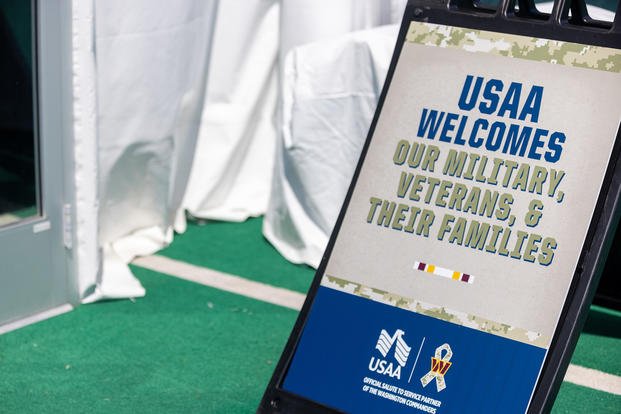Former Specialist Andrew Powers turned tragedy into triumph after an IED explosion in Iraq that left him badly wounded and blind in one eye. The 35-year-old California native ended up at Brooke Army Medical Center in San Antonio, where he underwent extensive recovery before transitioning to a job that still allowed him to serve his "brothers in arms" on the front lines.
Trained as a mechanized infantryman responsible for the upkeep and combat readiness of his platoon's track and wheeled vehicles, Powers -- now a member relationship specialist with USAA -- says personal responsibility and accountability are the foundation upon which his success is built.
"Personal responsibility and accountability are fundamental to the preparedness, both physically and mentally, of a successful team," he said. "It is of the utmost importance to be able to trust the people you work with. In combat, it may mean life or death. In the work environment, it means providing a high level of commitment to the financial well-being of our USAA members and their families."
Powers completed basic and airborne school and was assigned to the 3rd Infantry Division, stationed at Fort Benning, Georgia, before deploying to Iraq in January 2005. He was injured by a roadside bomb while dismounting from his Bradley Fighting Vehicle.
He believes operating seamlessly as a team is paramount, no matter where you work -- on the frontlines in the nation's Global War on Terrorism or in a Fortune 200 company that meets the financial services needs of more than 6.4 million USAA members.
While maintaining direct contact with USAA members and taking care of their auto, homeowners and insurance policies is a far cry from foot patrols in Baghdad, Powers said if everyone on the team is doing what they have trained to do, the mission will be accomplished.
"Success on the battlefield or in business can only be achieved if you take responsibility for your personal development and are accountable for your actions," he said.
His advice for those in combat arms looking to move into a civilian position in the corporate environment? Familiarize yourself with the skill sets expected for the position you're applying for.
"You may be surprised that many, if not all, of the skills developed in the military can be successfully translated to meet the expectation of the position you're applying for," Powers said. "Take advantage of the resources being provided by your military transition services. Whatever branch you may have served with, there are programs available to help you with the personal and resume development that will be crucial to a successful and smooth transition from the military to a meaningful and rewarding position in the corporate world."
Most importantly, Powers stresses the importance of flexibility to navigate the process.
"The civilian world works on a different set of timing principals from those you may be accustomed to. Patience may need to be relearned as the pace of operations may not be quite as fast as you might expect. Remember your success and your prosperity outside of the military will be what you make of it. Take advantage of the abilities you have already developed, the experiences you have and use them to your advantage."
Find the Right Veteran Job
Whether you want to polish your resume, find veteran job fairs in your area or connect with employers looking to hire veterans, Military.com can help. Sign up for a free Military.com membership to have job postings, guides and advice, and more delivered directly to your inbox.











